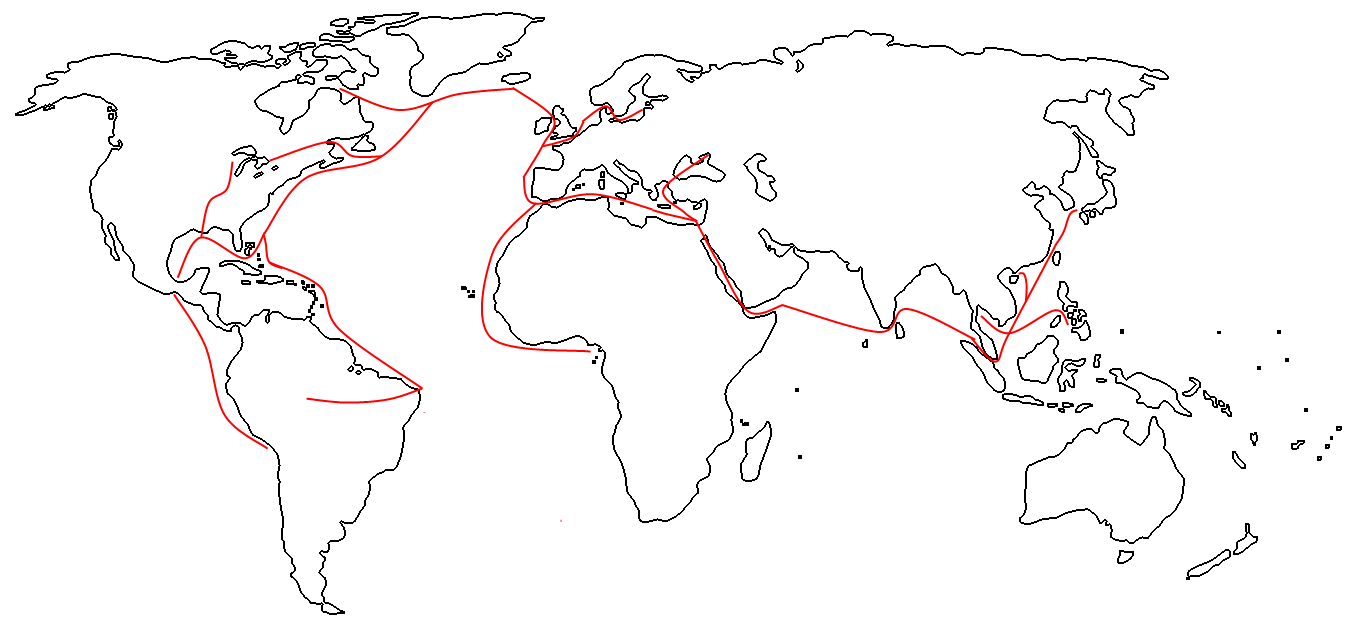Look to the West is a timeline I (Michael Douglas) am currently developing based on the idea of Native American civilizations maintaining control of their lands. This involves multiple PODs and a very complex history of the American continent and alternate Europe.
Note that this is not my ideal history (although I like it somewhat better than how things turned out OTL). There are still wars, genocides, oppressive governments and more. This is a somewhat optimistic look at how things might have turned out, but I'm going to try to keep it plausible.
Points of Divergence[]

Map of significant trade routes
The Ivory Road[]
Starting with the Tartessians and Phoenicians, voyages to North America (Note: This isn't fantasy. They've uncovered significant evidence of late) were immediately forgotten after the fall of Carthage. ITL, the Romans inherit the knowledge of North America, which they call Britain after their belief that the British isles were only the begining of a vast continent. As the profitability of mining America for tin declines, the Romans become interested in trading for Ivory with the natives. This has a variety or reprecussions on Europe and America, including a buildup of native trade routes, resistance to disease, and more.
Business Friendly Egypt[]
The rise of Islam doesn't destroy classical Egyptian civilization or sovereignty. Much of the trade along the silk road is diverted to the incense road: this leads to lower prices on the goods as they face less taxes from crossing various states, and leads to increased importance for Egypt, Somalia, South Indian states and Malaysia. This also removes the pressure to find a sea route to Asia, meaning North America will still not be colonized or explored with as much vigour. Europeans tend to be ill-informed about North America until the 18th century, when the world experiences sudden shifts towards mass production and technology increased in pace rapidly.
